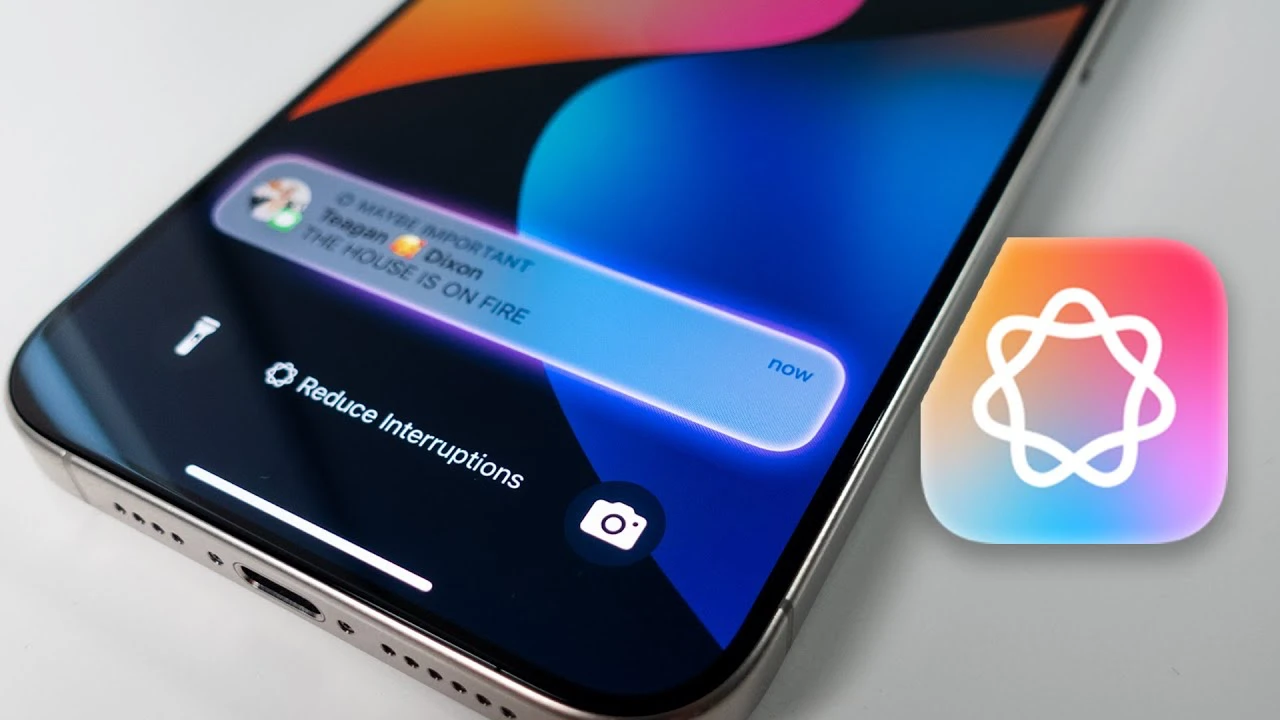Siri’s AI Revolution Delayed: Apple’s Big Promise Hits a Speed Bump—Here’s What You Need to Know

Apple's AI-Powered Siri Delay
Big Reveal: What Apple Promised for Siri
Back on June 10, 2024, during the World Wide Developers Conference (WWDC), Apple pulled back the curtain on its Apple Intelligence initiative—a suite of AI-powered tools aimed at transforming how we interact with our devices. At the heart of this announcement was a revamped Siri, poised to leap beyond its current capabilities into something far more advanced. Here’s a closer look at what Apple teased:
1. Personal Context Awareness
Imagine a Siri that knows you almost as well as your best friend. The upgraded assistant was designed to tap into your personal data—think emails, messages, calendars, and more—to deliver tailored responses. Need to reschedule a meeting? Siri could check your calendar, find a free slot, and even pull up details from a related email thread—all without you digging through apps.
2. Seamless App Integration and Control
Siri wasn’t just going to fetch information; it was set to act on your behalf. Picture this: you say, “Order my usual coffee,” and Siri checks your favorite coffee shop’s app, places the order, and confirms pickup time based on your location. This level of app integration promised to make Siri a proactive helper, not just a responder.
3. Enhanced Conversational Skills
Tired of repeating yourself to Siri? The new version aimed to fix that by maintaining context across a conversation. Ask, “What’s the weather like today?” followed by “How about tomorrow?” and Siri would know you’re still talking about the forecast—no need to start over. This upgrade was meant to rival the conversational prowess of competitors like Google Assistant or OpenAI’s ChatGPT Voice Mode.
These features were billed as Apple’s answer to the growing dominance of AI assistants from rivals like Google and Amazon. With an integration of ChatGPT already live (as noted in Reuters), the stage was set for Siri to shine. But then came the delay.
The Delay Announcement: A Rare Admission from Apple
On March 7, 2025, Apple broke the news to Daring Fireball that the AI-infused Siri wouldn’t arrive as planned. In a statement, spokesperson Jacqueline Roy explained:
This update, covered by outlets like MacRumors, confirms that the major Siri overhaul is now slated for 2026—potentially tied to iOS 20 in 2027, according to Bloomberg. While Apple has already rolled out some Apple Intelligence perks—like AI writing tools ✍️ and photo editing features 🖼️—the star of the show, this next-level Siri, remains on hold.
For a company known for its secrecy and polish, this public acknowledgment of a delay is noteworthy. It echoes past moments, like the shelving of AirPower ⚡ or the overhaul of Apple Maps 🗺️, where Apple adjusted course rather than rush an imperfect product to market.
Why Is Siri’s AI Upgrade Taking So Long?
So, what’s holding things up? The delay stems from a mix of technical hurdles, Apple’s core values, and a commitment to quality. Let’s break it down:
Apple’s Privacy Obsession: A Blessing and a Curse
Apple has long positioned itself as the champion of user privacy concerns, and that ethos shapes its AI strategy. Unlike Google or Amazon, which lean on cloud-based systems and massive datasets, Apple insists on keeping your data close to home—literally. Here’s how:
- On-Device Processing: Most of Siri’s smarts are meant to run directly on your iPhone or iPad, keeping sensitive info off external servers.
- Private Cloud Compute (PCC): For heavier lifting, Apple uses its own secure cloud system, designed to process data without storing it. Curious about the details? Check out Apple’s official explanation.
This approach, detailed in The Verge, is a win for privacy but a headache for development. Training AI to be context-aware and conversational typically demands tons of data—data Apple won’t harvest from users. As Wired points out, building a secure, efficient PCC system adds extra layers of complexity, slowing the timeline.
Quality Over Haste
Apple’s software boss, Craig Federighi, reportedly flagged issues during internal testing, per Bloomberg. The verdict? The new Siri “didn’t work properly.”
How Apple Stacks Up
Explore the major differences between Apple Intelligence (Siri) and Google AI (Gemini). In this comparison, we delve into key features, privacy concerns, and the different processing models used by these two AI powerhouses.
| Feature | Apple Intelligence (Siri) | Google AI (Gemini/Assistant) |
|---|---|---|
| Processing | On-device + Private Cloud Compute | Mostly cloud-based, leveraging vast datasets and real-time processing |
| Privacy | Top priority, no data retention | Data-driven, with opt-out options, but some user data may be stored for better results |
| Speed of Updates | Slower, due to strong focus on privacy and security protocols | Faster updates, with continuous training and improvements using real-time data |
| Conversational Ability | Delayed, aiming for context-aware, but still catching up to advanced conversational models | Already advanced, context-savvy, with better natural language processing |
| Market Reach | Strong integration in Apple devices like iPhone, iPad, Mac, and Apple Watch | Google Assistant is integrated into a wide range of devices, including smartphones, smart speakers, and TVs |
Both Apple and Google offer unique advantages depending on the user's needs, but Google leads in terms of cloud processing, while Apple focuses more on privacy and on-device computations.
What This Means for You and the Tech World
For Apple Users
If you snagged an iPhone 15 Pro or iPhone 16 hoping to chat with a super-smart Siri, this news stings. The wait for personal context and app integration features means sticking with the current Siri a bit longer. But there’s a silver lining: Apple’s track record suggests this delay could lead to a more reliable, user-friendly assistant when it finally lands.
In the meantime, you’re not totally left out. Apple Intelligence has already delivered goodies like:
- Writing Tools: Spruce up your emails or notes with AI suggestions.
- Notification Summaries: Get the gist of your alerts without the overwhelm.
- Photo Clean Up: Erase photobombers with a tap.
These perks, while neat, don’t match the game-changing potential of the delayed Siri upgrade.
For the Industry: Window for Rivals
Apple’s stumble could be a boon for competitors. Google’s Gemini AI and Amazon’s Alexa are already flexing advanced features, from app control to smart home mastery. As Investing warns, Apple risks losing ground in the generative AI race if it can’t catch up. This delay might also nudge other tech giants to rethink their own balance of speed, privacy, and innovation.
What’s Next? WWDC 2025 and Beyond
Mark your calendars for June 2025, when WWDC 2025 is expected to shed more light on Apple’s plans. While the full Siri overhaul might not hit until 2026—or even iOS 20 in 2027—Apple could tease progress or roll out smaller updates to tide us over. The company’s openness about this delay, rare as it is, signals a focus on transparency and getting it right.
Delay Worth Waiting For?
Apple’s decision to push back its AI features for Siri reflects the tricky dance between groundbreaking tech and uncompromising privacy concerns. For users, it’s a test of patience, but one that could yield a standout virtual assistant. For the industry, it’s a reminder that even giants like Apple face hurdles in the fast-moving world of AI.
Are you frustrated by the wait or hopeful for the outcome? Share your thoughts below! For the latest updates, explore our Tech and Gadgets sections.


Michael David is a forward-thinking AI content creator and Cambridge University graduate. Skilled at crafting concise, engaging narratives, he merges creativity with emerging technology to captivate audiences worldwide.
Michael provides specialized writing, content strategy, and portfolio curation for tech-focused brands. With a sharp eye for detail, he delivers timely projects that elevate brand presence and spark genuine reader engagement.
 [email protected]
[email protected]




